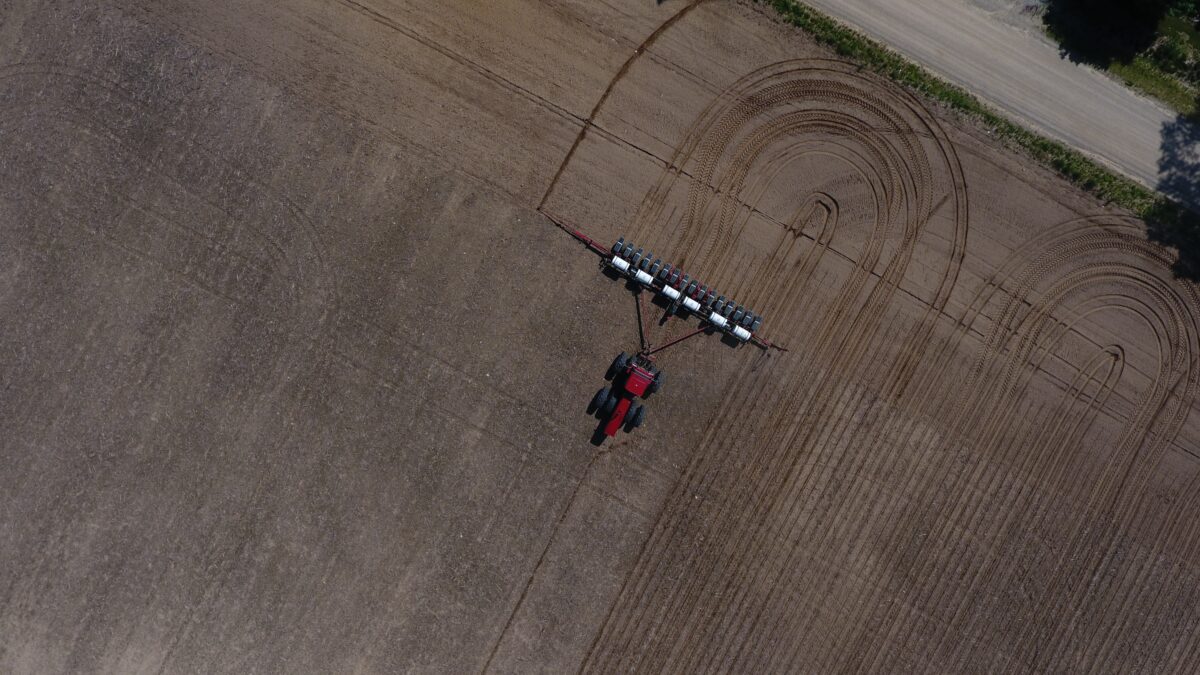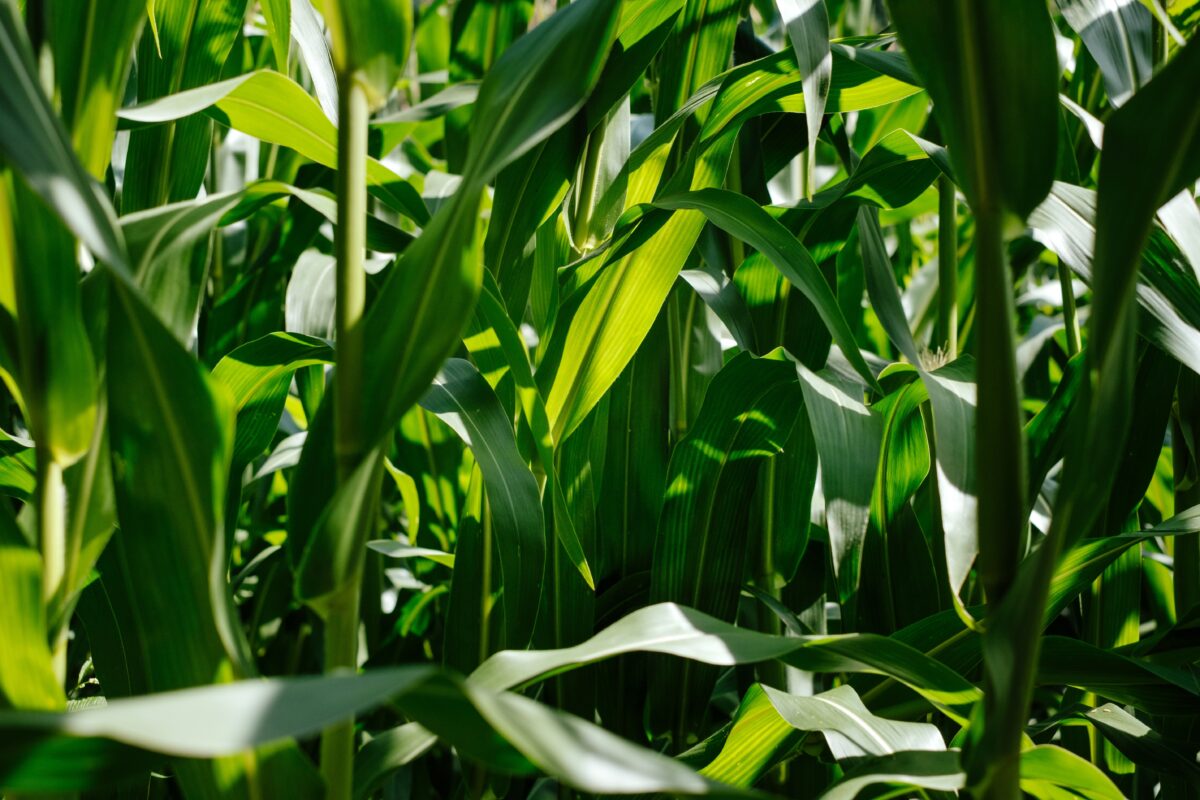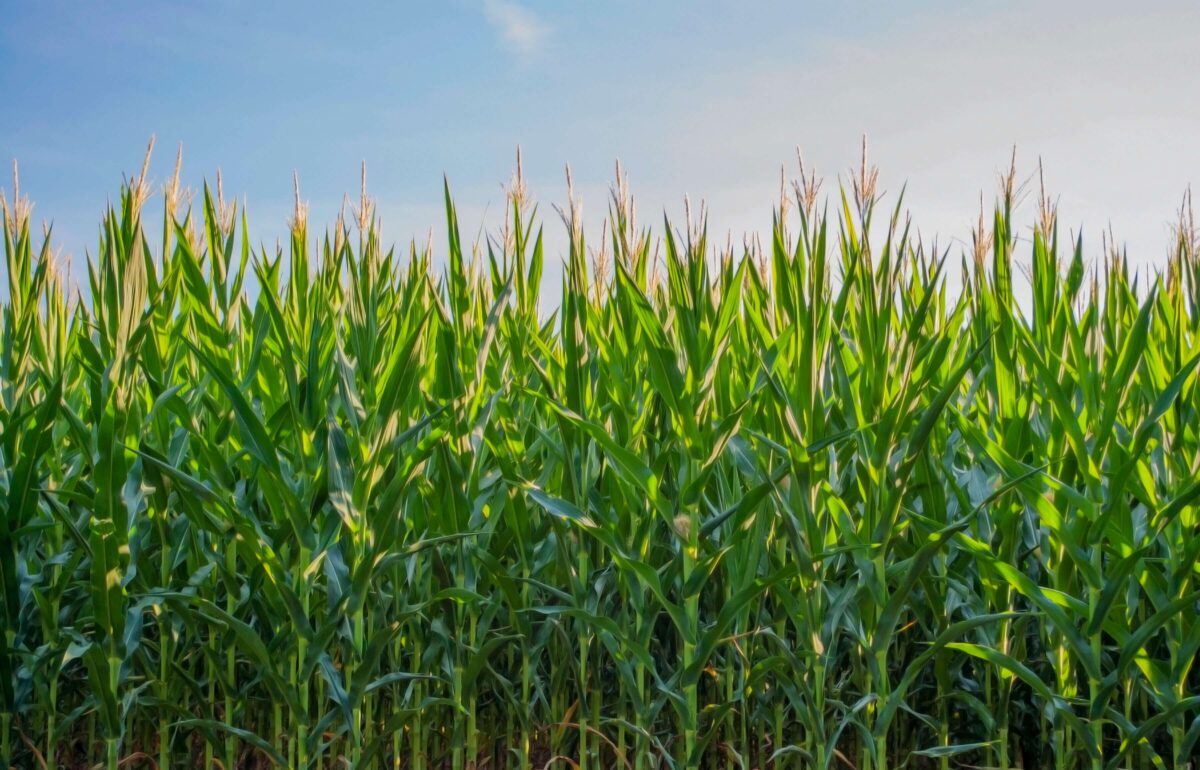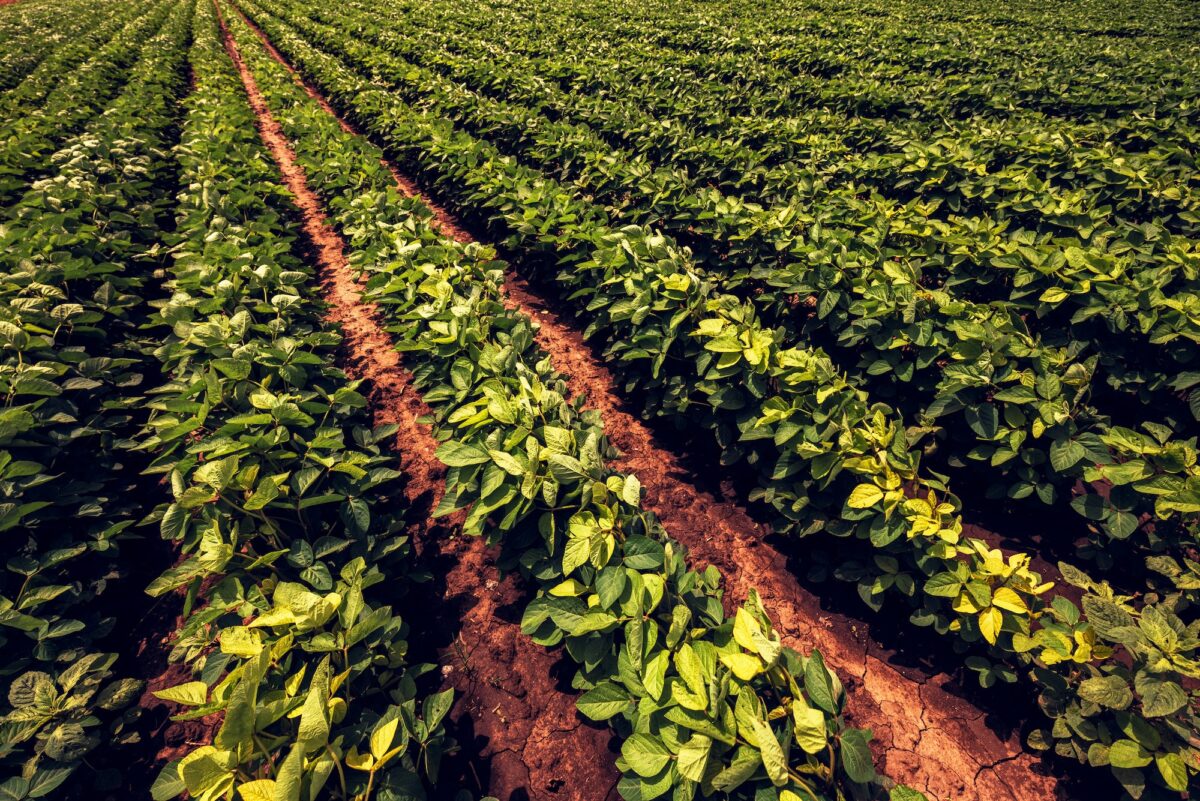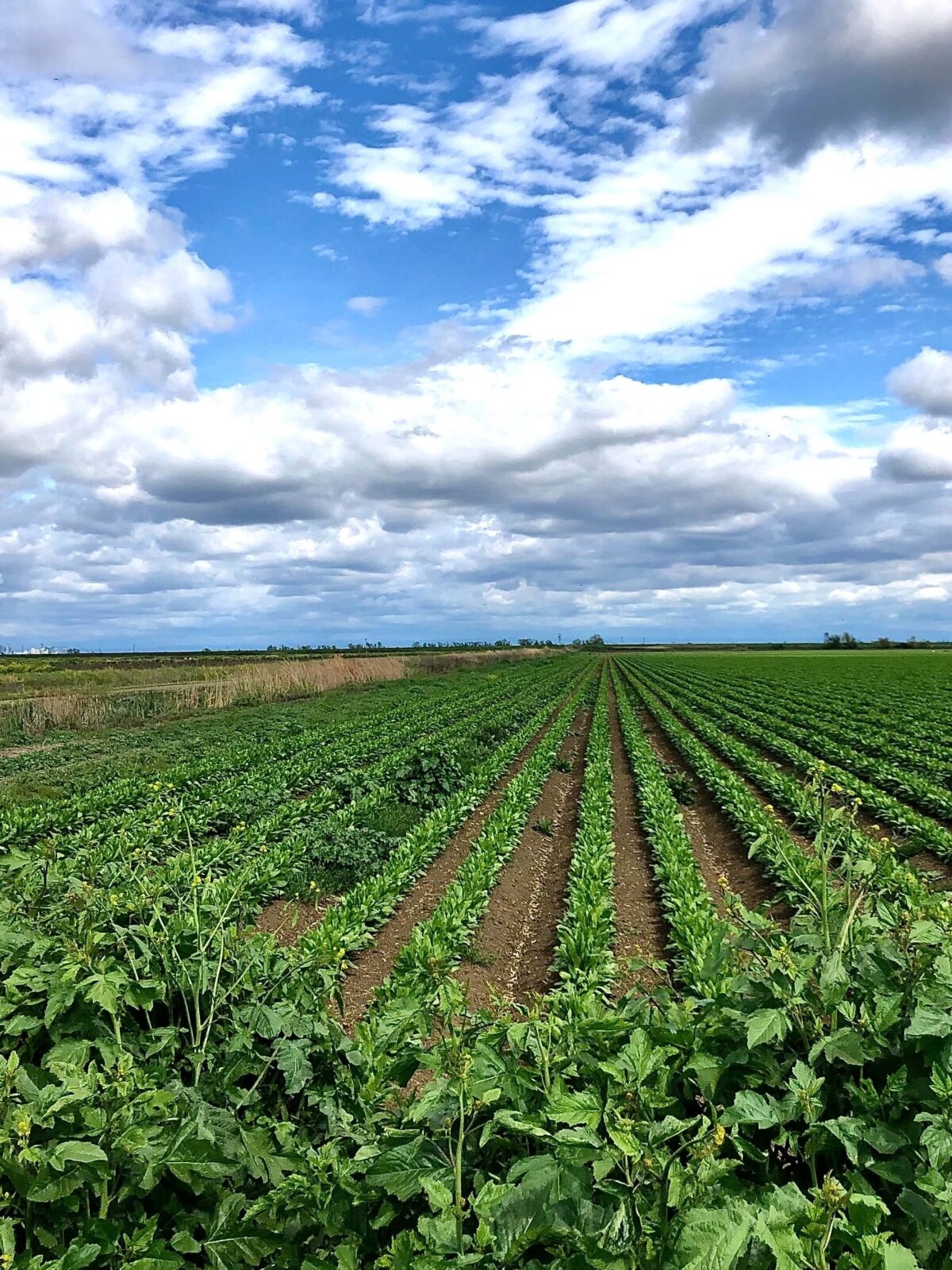Equipment Needed to Start a Farm
americanfarmfi on July 3, 2023
Starting a farm can be an exciting and rewarding venture. Whether you plan to focus on livestock farming or crop production, having the right equipment is key for your success. In this blog, we will explore the various types of equipment needed for a farm, including general farm equipment, livestock farming, and crop farming equipment, as well as other factors to consider when evaluating options.
Determining Equipment Needs
Before diving into the specific types of equipment, it’s essential to assess your farm’s unique needs. Consider factors such as the size of your operation, the type of farming you’ll be engaging in, and your budget. Taking the time to evaluate these aspects will help you make informed decisions when it comes to purchasing a piece of equipment and what farm equipment loan could be best for you.
General Farm Equipment
General farm equipment forms the backbone of any agricultural operation. These versatile tools are used for a wide range of tasks, big and small, and are essential for day-to-day farm operations. Below are the main pieces of equipment and their definitions:
Tractor: Tractors are the workhorses of any farm. They provide the power and versatility needed to perform a variety of tasks, from plowing and tilling to hauling and lifting heavy loads.
Cultivator: A handheld or machine-operated agricultural tool used for breaking up and loosening soil, removing weeds, and preparing the ground for planting.
Seeder: A device or machine used in agriculture to evenly distribute seeds onto the soil surface for planting purposes.
Sprayer: Used to apply liquid pesticides, herbicides, fertilizers, or other chemicals onto crops or plants for pest control, weed management, or nutrient supplementation.
Baler: A baler is a machine used in agriculture to compress and bind harvested crops, such as hay or straw, into compact and manageable bales for storage, transportation, or feeding livestock.
Implements and Attachments for Various Farming Tasks
To complement your tractor, you’ll need a range of implements and attachments for specific farming tasks. These may include:
- Truck with trailer
- Vehicles
- Plows: used to turn over the soil, break it up, and prepare it for planting by burying crop residues and weeds.
- Harrows: consisting of metal discs, spikes, or teeth arranged in a row or frame, used for breaking up soil clods, leveling the ground, and preparing the soil for planting.
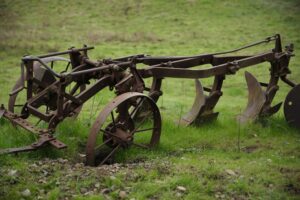
Livestock Farming Equipment
If you plan to venture into livestock farming, there are specific equipment requirements to ensure the health, well-being, and efficient management of your animals.
Feeding Systems and Equipment
Proper feeding is vital for livestock health and productivity. Depending on the type of animals you’re raising, you may need feeding equipment such as:
- Troughs: Troughs are long, narrow containers or channels used in farming to hold and supply water to livestock, allowing for convenient access to hydration and efficient water management.
- Feeders: Devices or structures used to store, distribute, and provide feed or fodder to livestock.
- Automated systems: Ensure consistent and controlled feeding.
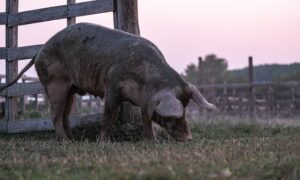
Handling and Animal Health Management Tools
To handle and manage your livestock effectively, you’ll require equipment such as:
- Chutes: Chutes are narrow, enclosed passageways or channels designed to guide the movement of livestock, facilitating safe and controlled handling, sorting, or loading of animals.
- Gates: Gates are movable barriers or entrances typically made of metal or wood, used in farming to control the movement of livestock, restrict access to certain areas, and provide a secure enclosure.
- Panels: Panels are rigid structures, often made of metal or wood, used in farming to create temporary or permanent enclosures, partitions, or barriers for containing livestock or defining specific areas within a farm or ranch.
- Scales: Scales are measuring devices used in farming to determine the weight of livestock, produce, or other agricultural materials, providing accurate measurements for monitoring growth, assessing yields, or ensuring proper portioning.
Additionally, animal health management tools like vaccination syringes, hoof trimmers, and dehorning equipment are essential for maintaining the well-being of your animals.
Housing and Fencing Requirements
Providing suitable housing and fencing is crucial for the safety and comfort of your livestock. This may include barns, sheds, or pens, along with sturdy and secure fencing to contain your animals and protect them from predators.
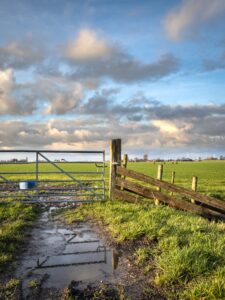
Crop Farming Equipment
For those focusing on crop production, having the right equipment is essential to maximize efficiency and yield.
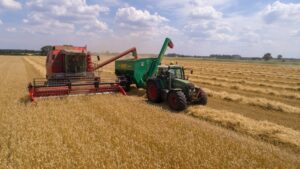
Seeders, Planters, and Transplanters
Planting crops efficiently and accurately is critical for successful food crop farming. Seeders, planters, and transplanters are specialized equipment that ensures precise seed placement, optimal spacing, and uniformity. In crop farming, the strategic application of fertilizer plays a crucial role in promoting healthy plant growth and maximizing yields. This requires compact machinery that can efficiently navigate through narrow rows and tight spaces, ensuring precise planting, cultivation, and harvesting operations.
Irrigation Systems for Optimal Crop Watering
Irrigation plays a vital role in crop farming, especially in areas with irregular rainfall patterns. Installing an efficient irrigation system, such as sprinklers or drip irrigation, can help ensure that your crops receive the right amount of water at the right time, promoting healthy growth and higher yields.
Harvesting Equipment and Grain Storage Facilities
When it’s time to harvest your crops, having the right equipment can make a significant difference in efficiency and quality. Harvesting equipment, such as combine harvesters or specialized machinery for specific crops, can streamline the process and minimize large losses. Additionally, you’ll need suitable grain storage facilities to protect and store your harvested crops.
Evaluating Equipment Options
With a wide range of equipment available, it’s essential to evaluate your buying options carefully. Here are some factors to consider when choosing equipment for your farm.
Factors to Consider When Choosing Equipment
Consider the specific requirements of your farming operation, including the size of your farm, the nature of your crops or livestock, and the tasks you need to perform. Take into account factors like durability, ease of use, maintenance requirements, and compatibility with existing utility equipment. Evaluate the reputation and customer reviews of manufacturers to ensure reliability.
Quality, Brand Reputation, and Pricing
Investing in high-quality equipment from reputable brands ensures durability, reliability, and long-term performance. Customer service should be a factor when deciding between brands. While quality is essential, it’s also crucial to consider pricing options that fit your budget. Explore different suppliers and compare prices to find the best balance between quality and affordability.
New vs. Used Equipment and Financing Options
When starting a farm, you may have the option to purchase new or used equipment. Farmers can find used equipment can be more affordable, but it’s important to inspect and evaluate its condition before making a decision. If financing is necessary, explore loan options specifically tailored for agricultural equipment. Evaluate interest rates, repayment terms, and potential tax benefits associated with financing to make an informed choice.
Conclusions on Equipment Needed to Start a Farm
Starting a farm requires careful consideration of the equipment needed for your specific farming activities. Whether it’s general farm equipment, livestock farming equipment, or crop farming equipment, each plays a vital role in your farm’s success. By evaluating your needs, considering factors like quality and pricing, and exploring financing options, you can make informed decisions and set yourself up for a successful farming venture. Remember, the right equipment is an investment that can contribute to increased productivity, efficiency, and profitability on your farm.

